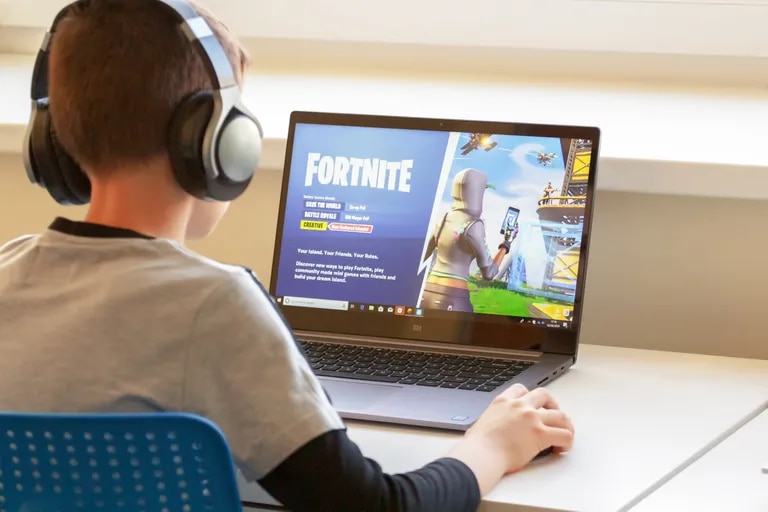Washington (AFP). Parents are often concerned about the harmful effects of video games on their children, from their mental health to social problems and lack of exercise, but a large new study published today in JAMA Network is open indicates that There are cognitive benefits associated with this popular pastime.
The study’s lead author, Bader Al-Shaarani, assistant professor of psychiatry at the University of Vermont, and colleagues analyzed data from the large, ongoing Adolescent Brain Cognitive Development (ABCD) Study, which is funded by the National Institutes of Health. The researchers focused on study responses and the results of cognitive tests and brain imaging of nearly 2,000 children aged 8 to 9 divided into two groups: those who had never played video games and those who played three or more hours a day.
Each group was evaluated on two tasks. The first is to see the arrows point to the right or left and to ask the children to press the direction of each arrow as quickly as possible. They were also asked not to press anything if they saw a “stop” sign, to measure how well they could control their impulses. In the second task, they were shown people’s faces and then asked whether the image shown later matched, to test their working memory.
After using statistical methods to control for variables that could skew results, such as parental income, IQ, and mental health symptoms, the team found that The players performed better in both tasks. While the tests were running, the children’s brains were scanned using functional magnetic resonance imaging. The brains of those who played video games showed more activity in areas associated with attention and memory.
“The results are consistent Video games improve cognitive skills involving response inhibition and working memoryAmong the main points of this work, the researchers highlight that “these findings suggest that video games may be associated with improved cognitive abilities.”
At the moment, it’s not possible to know if better cognitive performance leads to more games, or whether the result, said Sharani, who told AFP that the topic naturally attracted him as a regular player and neuroimaging expert. Previous research has focused on negative effects, and video game play has been linked to depression and increased aggression. However, these studies were limited by the relatively small number of participants, especially those involving brain imaging, Charani said.
The researchers hope to have a clearer answer as the study continues and examines the same children again at the older ages. This also helps rule out other potential factors in gaming such as the home environment, exercise and sleep quality.
Future studies could also benefit from knowing what types of video games the children were playing, although at the age of 10 they tend to like action games such as fortnite also Doctrine killer. “Of course, excessive screen time is detrimental to mental health and physical activity in general,” Sharany says. But the study results showed that video games may be a better use of screens than simply watching YouTube videos, which have no identifiable cognitive effects.
Nation



:quality(85)/cloudfront-us-east-1.images.arcpublishing.com/infobae/76Q3V4IS6W7CAP5TT6MVJGCHMQ.jpg)

:quality(85)/cloudfront-us-east-1.images.arcpublishing.com/infobae/3PS3SJMCCVGVDG2HMMSHZU52XM.jpg)